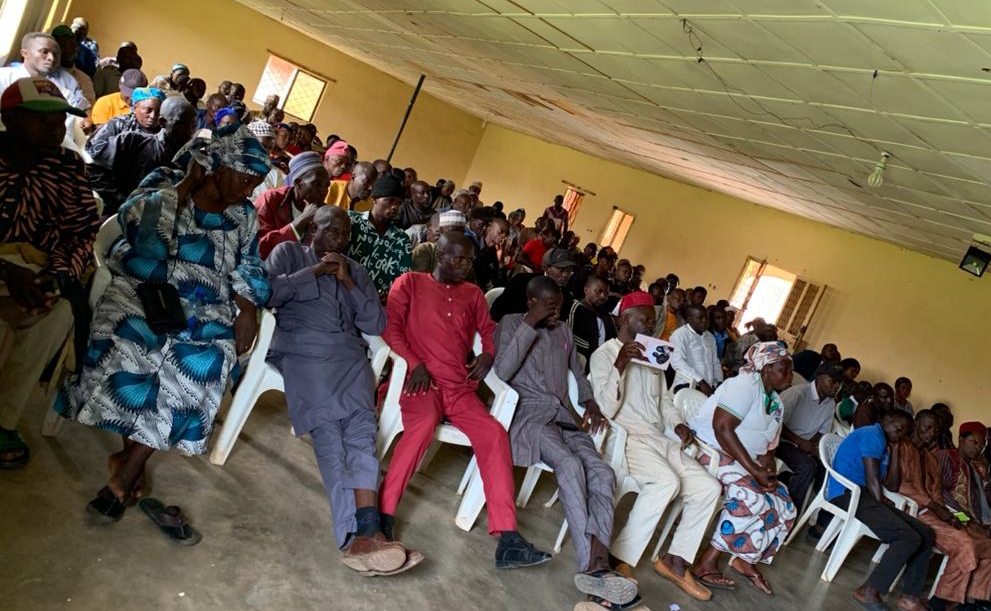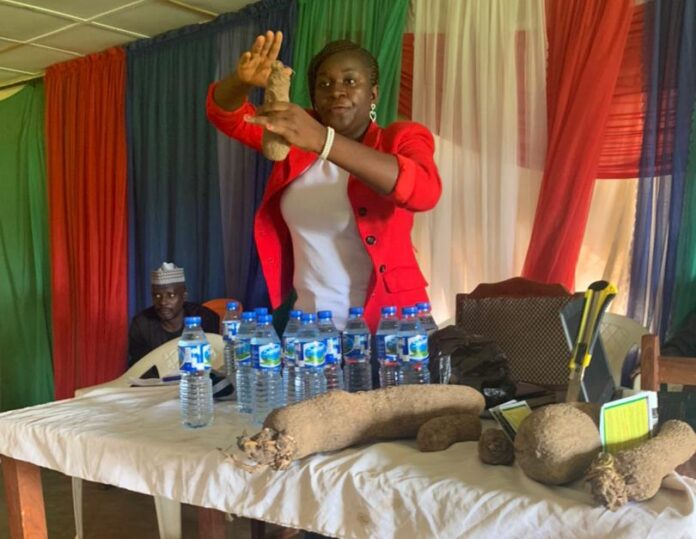Gladys Igomu of Efema Farms and Agro Consultancy discussing yam sack-farming.
By Marie-Therese Nanlong
Jos – For over a decade, Irish potato farmers in Plateau State have lost millions of naira to the blight disease. Some of them had jettisoned potato farming and embraced the farming of other crops like maize and yams.
Just last year, it was estimated that potato farmers in the State lost over N20m due to the blight disease and the situation may not abate as infected seedlings still dot the open markets.
Apart from blight disease, farmers especially in the northern and central zones of the State have been prevented from accessing their farms for cultivation due to the prevailing security situation, as concerns about food scarcity mount.
To give a valid alternative, 130 smallholder farmers from the Bokkos local government area in the central zone of the State have been trained on Yam Sack-Farming and empowered to ensure they make use of available spaces within their vicinity to produce food for both household use and commercial purpose.
READ: President of MSEs tells Tinubu to prioritise entrepreneurship
The training was facilitated by Dr. Elkanah Garang to build the capacity of the participants with relevant knowledge to use sacks to cultivate an improved variety of yams and make the crop a signature produce in Bokkos local government area.
 Participants at the training.
Participants at the training.
Speaking at the one-day training held at the Teachers’ House, Bokkos, Lead facilitator, Gladys Igomu of Efema Farms and Agro Consultancy took time to introduce participants to Yam Sack-Farming, a practice which appears effective, especially in the conservation of land for other agricultural purposes.
The beneficiaries who expressed excitement and gratitude for the knowledge gained, noted “the gesture is aimed at introducing an alternative crop to farmers as potato blight disease has continued to wreck the livelihood of the rural farmers.”
Igomu who explained the processes of cultivation to harvest to the participants, stressed, “This method of yam farming requires only a little space enough to keep sacks filled with soil that house the improved varieties of yam,” and encouraged them to make use of the knowledge to create wealth.
However, free yam seedlings were distributed to the participants, as they commended Dr. Elkanah Garang for the gesture and promised to practice what they learnt.
















